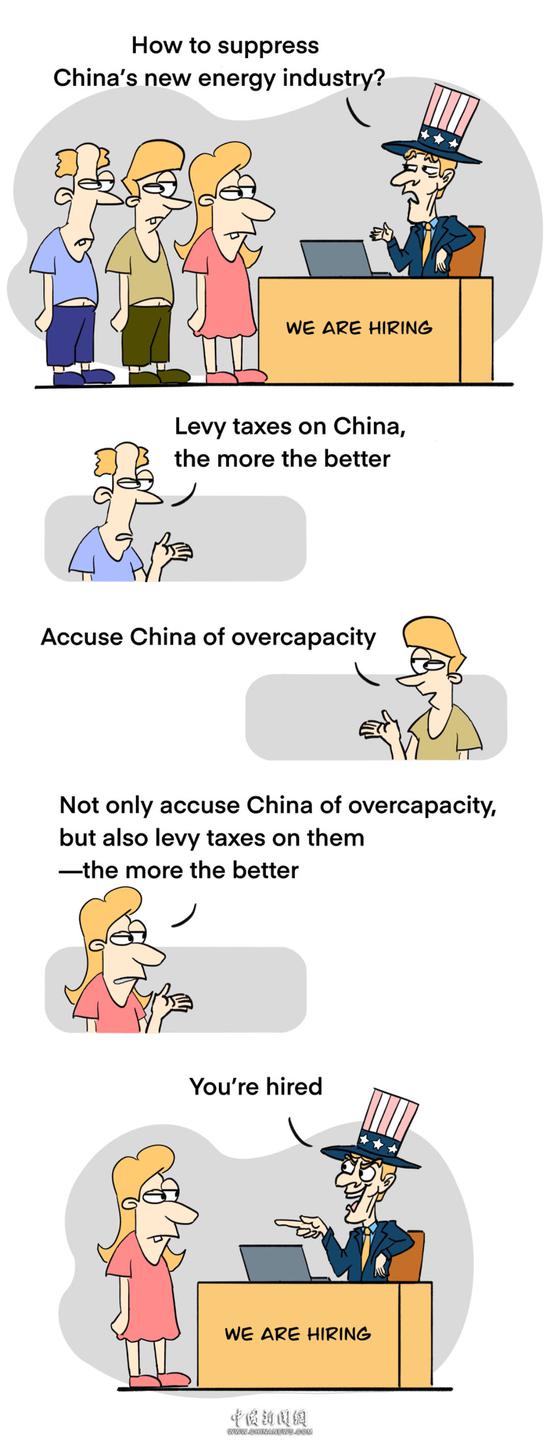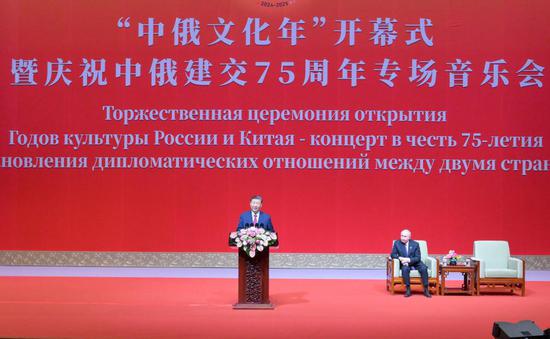Ever imagine a generative artificial intelligence (AI) specialist becoming a profession? Several AI-driven careers are already a reality in China. In the wake of rapid digital development, a surge of new professions has recently emerged, broadening the workforce landscape.
Nineteen new jobs were added to China's list of recognized professions by the Ministry of Human Resources and Social Security (MHRSS) on Friday, including network anchor (also called an online news anchor, which can be similar to a live-streamer), generative AI system application specialist, cultural and creative product planning and operations engineer, intelligent manufacturing system operations and maintenance administrator, and bioengineering technician.
The ministry also recognized 29 existing job types, including mobile operating system application designer. The recognition allows people working in the professions to enjoy relevant national policy benefits.
Last October, the ministry publicly solicited information on new occupations and received more than 430 proposals for new occupations, over twice the number of applications seen in 2021, with new occupation applications mainly involving fields such as business services, manufacturing and information technology, according to the ministry.
New tech, new jobs
China's progress in technological innovation and industrial upgrading is catalyzing a boom in job opportunities, and an increasing number of young people are eyeing opportunities in high-tech and emerging industries such as AI, big data and smart manufacturing.
Data revealed that occupations in the field of emerging high-tech attracted increasing numbers of graduates in 2023, with intelligent manufacturing, AI-generated content and AI large model options being dominant in this regard.
"The digital industry fits well with young people's interests and personal pursuits, thus offering more vacancies that match their employment expectations," said Chen Yun, director of the employment and entrepreneurial research office of the Chinese Academy of Labor and Social Security.
Virtual architect, a profession using AI algorithms to build a world in virtual space, is a new occupation often linked to the games industry. It is dedicated to providing immersive experiences for gamers, movie-goers and virtual reality users.
Wang is a newcomer in this field, but is very confident about the prospects for his job. "This technology has vast potential, and I can use it to represent the whole world," he said.
Virtual architects can also construct various scenarios online in catering to customer demands, such as 3D meeting rooms, online press conferences, online exhibitions and virtual museums. Wang said he hopes more people will join him in transforming the imagination of the virtual world into productive forces in reality.
Other new occupations exploiting digital technologies are also gaining popularity, especially among young job hunters.
With developing new quality productive forces high on this year's agenda, China is doubling down on its efforts to make traditional industries more sophisticated, smarter and more eco-friendly, fostering emerging and future-oriented industries, and opening up new fields such as quantum technology and life sciences.
"Industrial upgrading is reshaping the talent structure of enterprises, and college graduates can adapt to these changes more easily as they are well-acquainted with the internet and more versatile," said Li Qiang, executive vice president of Zhaopin.com, a human resources platform.
More support for job-hunting
China is expected to see over 11.7 million college graduates in 2024, and the number of young job seekers has continued to grow, according to the MHRSS.
"China's current employment situation is on the mend as the economy picks up momentum. Despite challenges, positive factors such as economic growth and policy support continue to bolster the job market," said Mo Rong, president of the Chinese Academy of Labor and Social Security.
According to Wang Xiaoping, minister at the MHRSS, the country will beef up support for major employment drivers such as private, small and medium-sized companies, and boost the development of digital, elderly care and green sectors to play a greater role in creating jobs.
"Many new jobs and occupations will emerge, providing young people with fresh career choices and new space for development," said Wang Jinsong, dean of the Graduate School of Tianjin University of Technology.
To meet the surging market demand for skilled professionals, China provided government-subsidized vocational training to 18 million people in 2023, with a special focus on key sectors such as advanced manufacturing and modern services, according to the MHRSS.
The country has set aside 66.7 billion yuan (about $9.39 billion) for employment subsidies this year, with a particular focus on the employment and entrepreneurship of college graduates, rural migrant workers and other key populations. It has also vowed to continue to strengthen measures to promote youth employment, expand market-oriented channels, and provide better guidance for employment and entrepreneurship.


















































 京公網安備 11010202009201號
京公網安備 11010202009201號